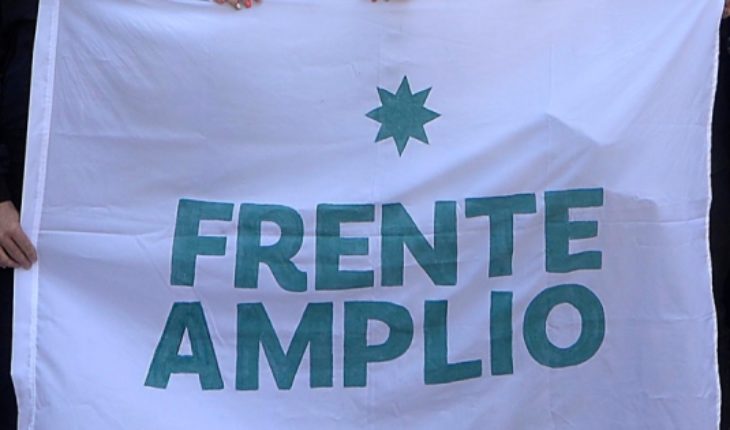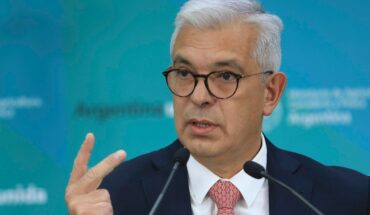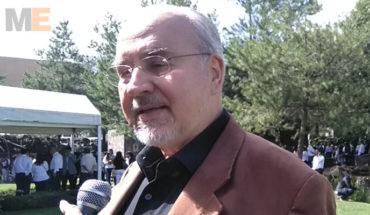The challenge for the political cycle is to consolidate a political and social force with a vocation of a majority but also to pro- e-ectose it as an option of change and government. This story, repeated as a mantra in the front-front spheres, still fails to move from a declaration of good intentions or materialize on a path or design that makes it possible, largely because of the vertigo involving decision-making and the risk entails for internal unity.
Looking back at recent months it is possible to appreciate certain advances in the development of an incident policy that, however, risks stagnating in the face of municipal definition.
The vote of the presidency of the Chamber of Deputies marked a milestone in the political development of the Broad Front. Assuming the need to bet on the unity of the opposition, the bench was able to vote for a conservative DC like Iván Flores, passed the costs of an eventual break to the phalanx, which soon occurred after the votes of the idea of legislating reform tr ibutaria and planned. This manoeuvre involved gaining a political space as an actor capable of tensioning the arc of forces of the center-left and at the same time sharpening his internal crisis, overcoming the installation phase and projecting himself as an incident force. The challenge today remains to advance along this line, which requires a reading of the chart that emerges in the wake of that crisis and projecting scenarios to capitalize on it.
The truth is that the DC crisis has continued to escalate, resulting in an internal break following the right-wing drift of the Chaín-led leadership of the impossibility of rebuilding a center in a scenario of increasing polarization. Added to this is the PS crisis in the wake of the lack of leadership and articulation in the mid-left, aggravated by the polarized internal choice that exposed the clientele networks and drug nexus that threatens to sink the party into a deep crisis. In this table, auxiliary parties such as the PPD and PR lack the ability to articulate positions after the end of the PS-DC historical axis and the dissolution of that force field, assuming in the case of the PR positions subordinate to the DC story of reconstruction of the center , and in the case of the PPD a state of paralysis in the absence of conduction of PS. In this chart the recomposition efforts on the left wing of the former NM materialize in the Unity for Change coalition, which gives an account of the crystallization of a third axis in the field of what was the new majority.
This picture of decomposition of the centre left can be an opportunity to make a leap in the development of the Broad Front as the main force of the opposition, capitalizing on the accession of an important part of the concertacionist people and projecting an alternative capable of rooting in the country’s communes, laying the groundwork for a transformation project at the national level for the 2021 elections.
In this regard, it is important to assume a number of issues which are absent in the reflection of the current context and which are generally addressed in little depth.
The first thing is to understand that there is no New Majority. There are three distinct axes for which it needs to be addressed differently, and in this it is key to understand that it is necessary to build a political and programmatic alliance with Unit for Change to expand the support base of a project exceeding the model in the medium and long term, for which the Broad Front is relevant but not sufficient.
The second thing is to understand that the need to build a political and social majority beyond the walls of the Broad Front, and therefore to emerge from the 20% niche, necessarily requires seriously addressing a value that interprets a world that is essential and that is constituted in the account of ’88: Unity against the Right.
Clearly it is up to us to provide content to that unity as a desire to overcome what the right represents, in this context we must not lose sight of that it is the betrayal of this value that has in crisis to the DC and what allowed the FA to capitalize on them and passing on to the phalanx the political costs of the opposition division.
The third is to understand that not every electoral pact involves a programmatic political pact. A pact can be instrumental if the programmatic political alliances necessary to clearly bring the battle of ideas to the world we intend to reach, without exposing ourselves to paying the cost of division to the right. This not only facilitates the conditions that allow us to directly confront and take from officialism key communes and regional capitals such as Valdivia and Punta Arenas, which the Parliamentarians and presidential people provide in good standing, but also safeguards the possibility of disputed projects under a framework that allows us to convene a world that votes and is undevoid of reference in the face of the deep crisis of the centre-left.
As noted, it is essential to expand the sustaining base of a model improvement project. Today there are scenario conditions for addressing a political and programmatic agreement between the Broad Front and Unity for Change, the starting point of which is a platform for good living in our communes, based on the synthesis of the experiences of Recoleta and Valparaiso. From there, and as both coalitions move forward in setting their priorities, it is possible to build an electoral agreement consisting of reciprocal support in alctidic betting across the country.
From that agreement floor it might be possible to demonstrate from both coalitions the availability of a broad opposition pact for primary elections to mayors, raising the possibility of competing on separate lists at the council level. The call for broad opposition primaries could put pressure on the board from a foot of strength from the left very different from the initial; in this context would be others who subtract and pay the costs, but not both coalitions, which in that case would be equally strengthened by having to come up with a single electoral pact for the alkaline election, taking a substantial step in the unity of the progressism and left in the face of the upcoming electoral challenges and in the unity of the popular field.
This is a debate that deserves seriousness and not sensationalist. To this end, it is key to assume that the tactic does not involve strategic or ideological resignations. In the task of building a broad front for the changes the people need, all ideas are welcome.
The content poured into this opinion column is the sole responsibility of its author, and does not necessarily reflect the editorial line or position of El Mostrador.





